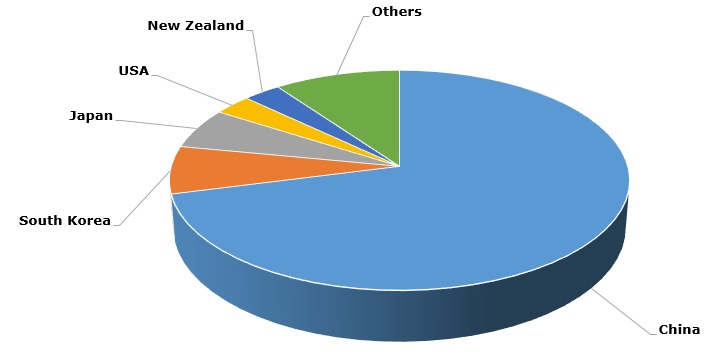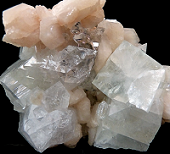Zeolites form a class of aluminosilicate minerals primarily applicable in detergent powders, catalysts (especially in petroleum refining), absorbents, feed additives, soil amendments, water treatment agents, to name only a few. Zeolites are extremely useful as catalysts for several important reactions involving organic molecules. It is true that in many applications they are indispensable though availability of substitutes may complicate their future market prospects. Besides, deterioration of petroleum refining market conditions may affect demand for zeolites. Zeolites may be also the key to industrial waste problems, contributing to a cleaner, safer environment in a great number of ways. All these create a complex, poorly predictable picture of the global zeolite market, which becomes even harder to predict due to the fact that world reserves of natural zeolites have not been properly estimated.
China is the largest producer of natural zeolites, with nearly 71% of global production in 2016. China is followed by South Korea, Japan, USA and New Zealand.
Structure of natural zeolites production by country (2016)

The market for zeolites is expected to grow at the rate of about 7% per year, driven mostly by catalytic application in the petrochemical sector. It refers to both natural and synthetic zeolites. This market remains highly technological and innovative with multiple high-tech companies operating on it. These companies, like Albemarle, Clariant, Mitsuibishi Chemical Corporation (MCC) or Mitsui Zosen Machinery & Service (MZM), usually have significant experience in research and development of various advanced zeolite products (e.g. catalysts). To secure their position on the market they have to offer a broad selection of customized zeolite products of various grades, including highly specialized grades.
More information on the zeolites market can be found in insightful research publication “Zeolites: 2017 World Market Review and Forecast to 2027”.
